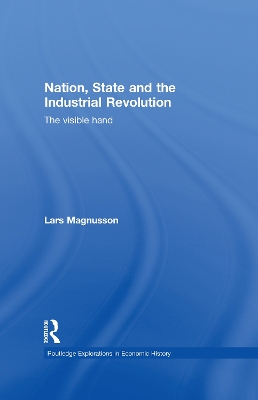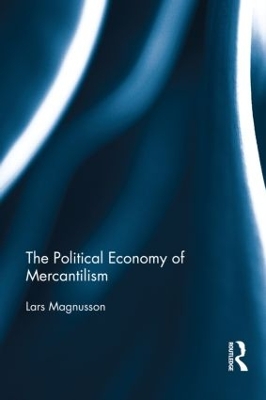Routledge Explorations in Economic History
1 primary work • 3 total works
Book 45
The industrial revolution and the creation of the modern (national) state are two of the most important historical processes to have occurred in Europe during the 19th century. The state and other bodies of governance play an important role in the development of capitalist market societies since the 18th century. But modern market economies are to a large degree a product of the interplay between market and governance. Yet we are often told a strikingly different tale about the modern economy, at least how it ought to work and operate - as far as possible without public interference. Even more frequently we have been taught that the modern capitalist market economy is a product of an industrial revolution, originating with the UK in the middle of the 18th century propelled by laissez faire and the triumph of free markets which gradually liberated themselves from the grip of an old dirigiste state.
This book argues that in order to get a better understanding of this period and the rise of modern industrial capitalism it is necessary to link the industrial revolution in its various forms to a political and institutional context of state-making and the creation of modern national states. Professor Magnusson demonstrates that a historical narrative which does not acknowledge the role of the state and public governance for the establishment of the modern capitalist market economy is fundamentally flawed.
Since the days of Adam Smith, Mercantilism has been a hotly debated issue. Condemned at the end of the 18th century as a "false" system of economic thinking and political practice, it has returned paradoxically to the forefront in regard to issues such as the creation of economic growth in developing countries. This concept is often used in order to depict economic thinking and economic policy in early modern Europe; its meaning and content has been highly debated for over two hundred years.
Following on from his 1994 volume Mercantilism – The Shaping of an Economic Language, this new book from Lars Magnusson presents a more synthetic interpretation of Mercantilism not only as a theoretical system, but also as a system of political economy. This book incorporates samples of material from the 1994 publication alongside new material, ordered in a new set of chapters and up-date discussions on mercantilism up to the present day.
Tracing the development of a particular political economy of Mercantilism in a period of nascent state making in Western and Continental Europe from the 16th to the 18th century, the book describes how European rulers regarded foreign trade and industrialisation as a means to achieve power and influence amidst international competition over trades and markets. Returning to debates concerning whether Mercantilism was a system of power or of wealth, Magnusson argues that it is in fact was both, and that contemporaries almost without exception saw these goals as interconnected. He also emphasises that Mercantilism was an all-European issue in a time of trade wars and the struggle for international power and recognition. In examining these issues, this book offers an unrivalled modern synthesis of Mercantilist ideas and practices.


